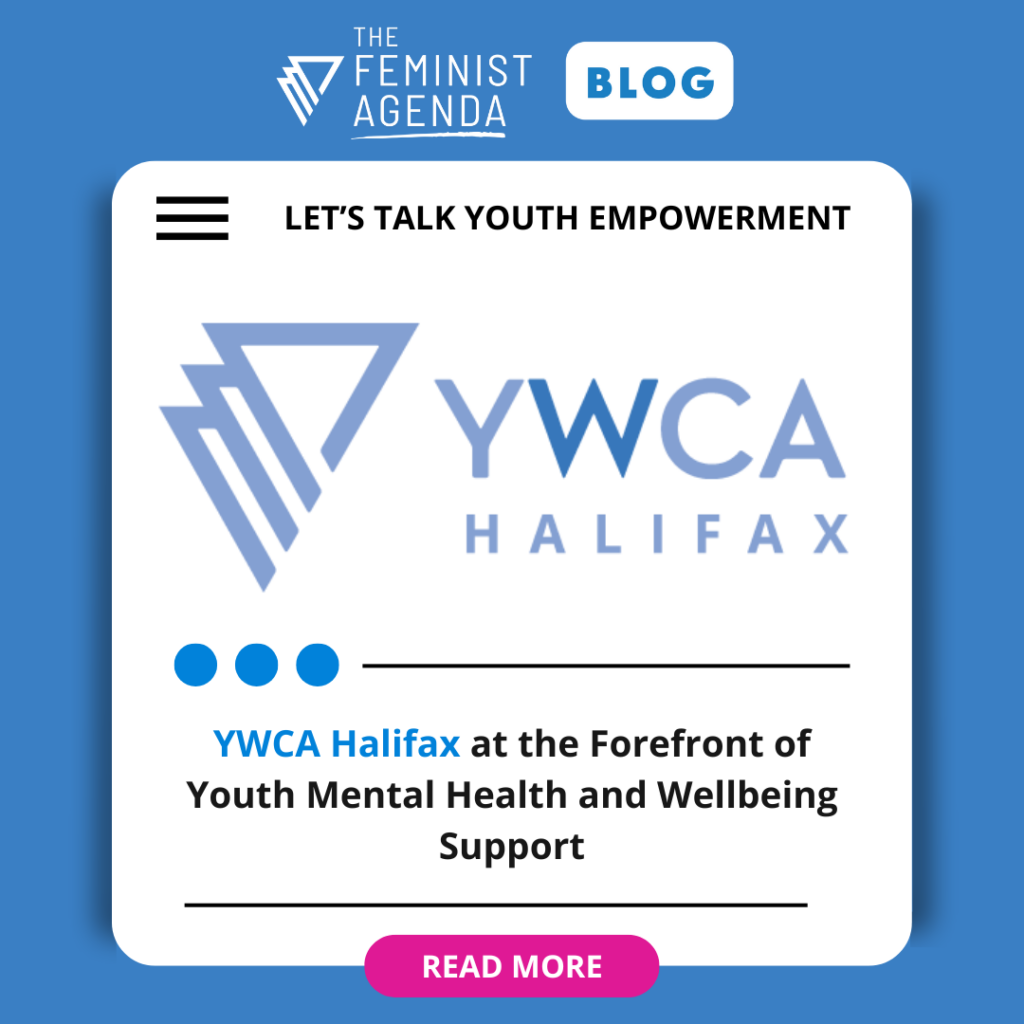Read: 2min
Last May, The Nova Scotia government announced new youth mental health sites in the province coordinated by multiple community organizations, including YWCA Halifax. This news is a significant step towards better accessibility to mental health supports for young people. These safe spaces are central to better supporting and understanding the unique needs of all individuals.
Across Canada, there has been a notable increase in the need for mental health services among children and youth. The Mental Health Commission of Canada highlighted that most people living with a mental illness saw their symptoms begin before age 18 (2017). The pandemic has exacerbated these needs. The Canadian Institute for Health Information’s research found an increase in hospitalizations for mental health reasons, from 21% in 2019 to 23% in 2020. Nearly one in four hospitalizations for young people aged 5 to 24 were due to mental health conditions. Additionally, Kids Help Phone reported a three-fold increase in phone, text, and resource usage interactions between 2019 and 2020.
Laura Swaine (she/her), manager of community programs at YWCA Halifax, echoes this situation in Nova Scotia. Programs and services for young people have a significant impact on their well-being, but demand is high and waiting lists are a major problem. “The time between when young people acknowledge the need to have support and when they receive help is far too long, further impacting their mental health and well-being,” says Swaine. Although clinical support is essential, there is a need to provide a range of diverse supports, both online and offline. Collaboration is the key word in meeting the unique needs of each young person.
Integrated Youth Services (IYS) sites are safe places where young people aged 12 to 25 can find the unique support they need. These sites bring together community organizations, such as YWCA Halifax, to offer various services and activities. The new mental health sites announced by the Nova Scotia government will complement these IYS, providing more services and resources to youth and their families. The first mental health sites are expected to open in early 2025 and others will open over the next few years.
These new youth mental health sites represent a major step forward in improving youth well-being in Nova Scotia. Ongoing collaboration between organizations and communities is essential, explains Swaine, adding that Nova Scotia, by being a smaller province, makes this collaboration easier. Swaine emphasized that YWCA Halifax continues to offer many programs to support young people’s well-being. One of them is called Opened New Tab, which focuses on violence and cyberbullying by providing support to schools and communities while building alternatives to create a safer online space for young people.
Although this work is ongoing, one thing is certain; the involvement of all community stakeholders is necessary and makes a big difference in creating change. YWCA Halifax makes a real difference in their community through diverse initiatives and programs. Take a moment to support YWCA Halifax’s work in advancing better support to youth, following them on Instagram, Facebook and LinkedIn, and donating.
